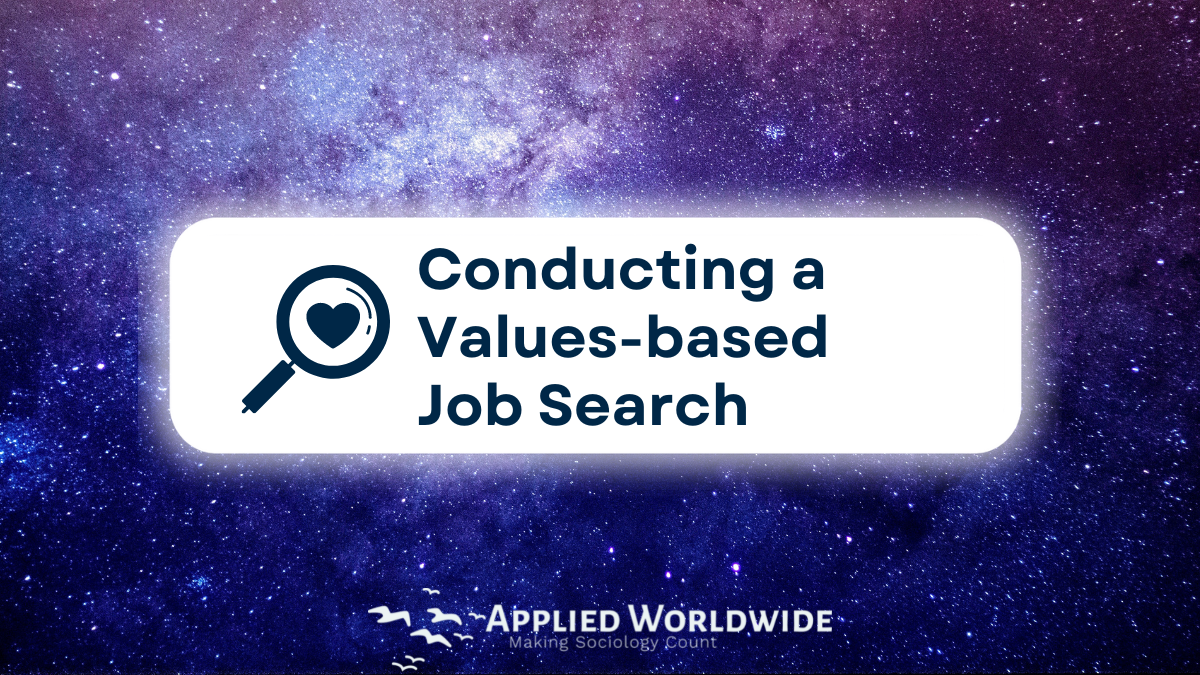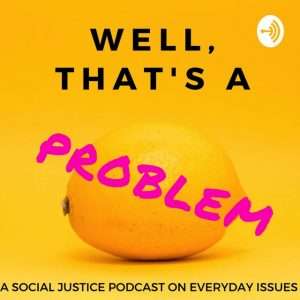In 2022, I had the opportunity to speak on a panel of academics who had transitioned out of higher education. The most pressing question boiled down to this: how do folks decide where to go next? Many of us, panelists and viewers alike, had initially believed that academia was the best place for us. Many of us had turned out to be wrong. Many of us were understandably wary of making that kind of mistake again.
The ensuing conversation emphasized day-to-day tasks. My fellow panelists urged folks to consider what they would like to do and what tools they would like to use. Rather than feeling tied to your initial field of study, or the subject of your dissertation, you might think about the transferable skills and practices you developed along the way. Do you know how to conduct data analysis in R or Stata? Do you enjoy writing for public or professional audiences? Do you prefer to have a clear set of tasks, or do you fare better in less structured environments? Do you prefer to be the one who selects projects and delegates tasks, or would you rather have your work assigned to you?
This kind of thinking is essential. However, as I shared that day, a day-to-day-tasks-based job search would not have been enough in my case. In addition to dissatisfaction with the particulars of my academic role, I had struggled with moral burnout. The values that drove my work did not align well with those guiding my program and institution.
My Journey To and Away From Academia
When I was an undergrad student, I found myself torn between two seemingly unrelated fields: sociology and organic chemistry. I loved my courses in both areas. Outside of the classroom, I was working as a sexual assault hotline counselor – drawing continually on sociological lessons about social inequality and institutions – and working as an organic chemistry tutor. It eventually became time to pick a side. In sociology, I could imagine myself working in higher education or social services easily enough. In chemistry, in order to do the kind of work that I loved, I imagined that it would make the most sense to work in pharmaceuticals. That seemed impossible. It wasn’t so much the logistics of finding work – I knew absolutely nothing about that – so much as lessons I had learned in sociology courses about big pharma and the for-profit production of medicines.
I committed myself to sociology and anti-violence advocacy. Over the years, this included one year of cobbling part-time roles together, two years in a master’s program, two years of adjuncting across multiple schools, six years in a PhD program (with more adjuncting), one year as an LGBTQ+ Advocate at an anti-violence organization, three years on the tenure track, and finally departing the academy to conduct research and evaluation for an anti-trafficking organization.
Like many academics in my former circumstances, I felt a mix of relief and accomplishment when I found my way to the tenure track. I had officially “made it” as a scholar and teacher. I had a chance at a permanent job for the first time in my life. My salary nearly doubled relative to what I had been making as a full time advocate and, thanks to a strong union, was all but guaranteed to increase steadily over time. And yet, in my second year, I began casually looking for other work. By the third, I was more active and determined in the search.
I was hardly alone in choosing to leave academia. As it happened, I left in the thick of the so-called “great resignation” as schools throughout the world struggled to balance COVID safety protocols with student and employee retention. I would be lying if I said that none of the issues raised in countless articles about faculty resignations applied to me. Yet one of the driving factors in my departure predated the pandemic. I had consistently taken an anti-carceral approach to my advocacy work, and was skeptical of the capacity of criminal legal institutions to provide justice or support for survivors. I wound up getting hired in a criminal justice program. The values behind that program, and the values that drove many of my colleagues’ and students’ work, diverged sharply from my own. I suspect that this would have been unsustainable in the long term, even if the pandemic had never occurred.
A Quick Example of Values-Based Searching: Anti-violence Advocacy
If anti-violence advocacy work is unfamiliar, you might expect practitioners to be relatively consistent in what brings them to the field – a desire to support survivors, for example. Yet, even with a quick glance at the career options, it quickly becomes clear that individuals and institutions embrace a wide range of principles in working to address sexual violence, domestic violence, and human trafficking. Some of those principles are fundamentally at odds with one another. Here are a few examples of factors that I’ve learned to consider over the years:
- The type of institution: if someone wants a job in advocacy, they might find one in a small or mid-sized independent nonprofit organization, within a larger nonprofit that runs multiple programs, in a college or university, in a prosecutorial agency or court, in an independent research institution, or with the military (just to name a few!).
- Political or apolitical: some organizations take an explicitly political approach to the work, connecting anti-violence advocacy with anti-oppression principles. Others perceive the work as a matter of “people helping people,” and do not embrace a feminist, anti-racist, anti-carceral, or otherwise explicitly political framework. Similarly, some organizations take explicit stances on policy issues and welcome staff to do the same, whereas others prohibit such actions.
- Level of analysis: similar to the political/apolitical divide, it’s important to consider whether organizations understand violence as an individual/micro problem or an issue with cultural and institutional dimensions.
- Attitudes towards lived experience: is the organization survivor-led in any way? Do job postings encourage folks with lived experience of victimization to apply?
After reflecting on the values I bring to the work, I sought out an independent organization that took an explicitly political approach. I avoided state institutions altogether. In contrast, one of my former students and coauthors was interested in working within the criminal legal system to support survivors, and so she pursued a position with a prosecutorial agency.
Getting Started on Your Values-based Job Search
Wherever you are in the process, it may be worth reflecting on your own values. What drives you to do your work? When you are considering positions, take some time to examine your potential employers. Mission/vision/value statements, examples of organizations they’ve partnered with, and policy positions (if applicable) can be a great start. If you will be making some sort of product, where might it go? Who will use it, and why? How would your work, and the work of the organization, connect with broader issues that matter to you? If you can’t learn enough from a website or posting, consider raising these questions in an interview.
And finally, this is a great time to apply your sociological training! Whereas many people might consider values to be strictly personal, sociology offers a foundation for thinking about institutional values and impact.







